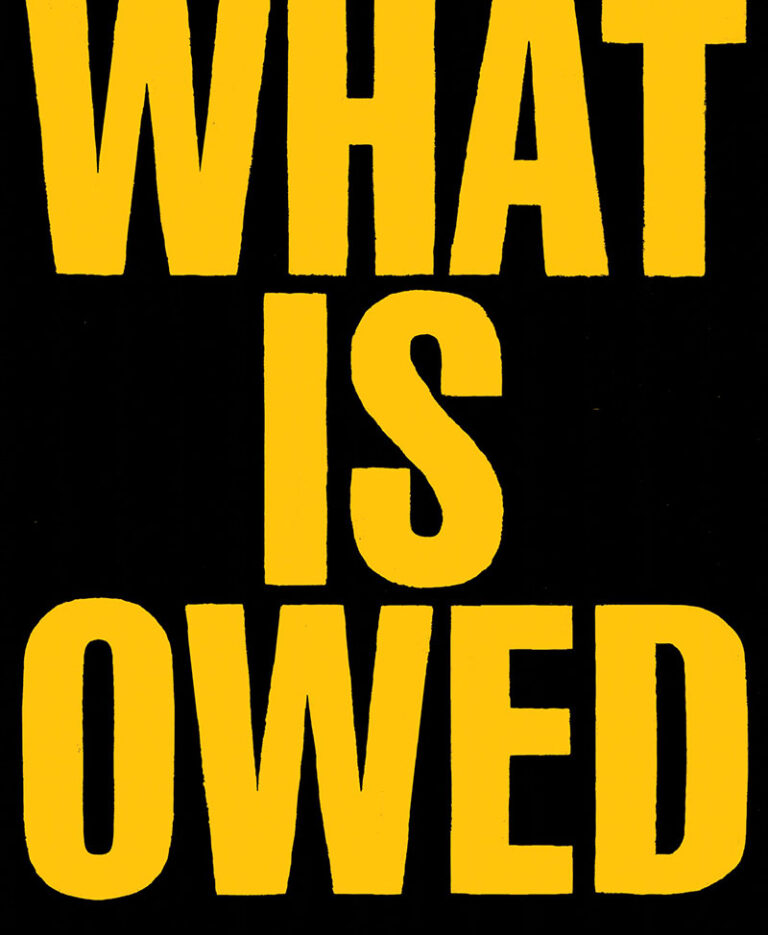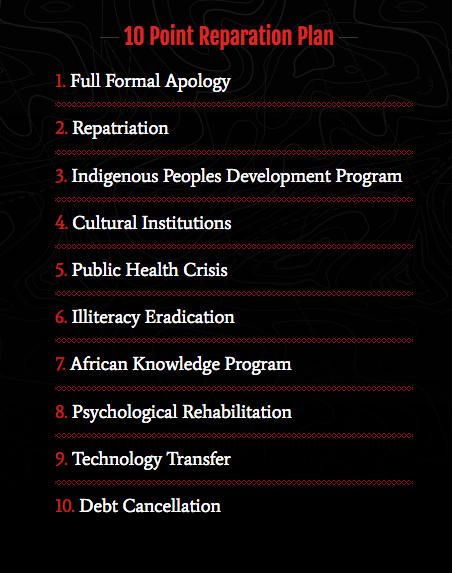Beyond Statues


Under the rubric of Black Lives Matter (UK limited) it is time that the objective of the discourse and movement is swiftly moved on from felling statues and begins to confront the political, moral and historical injustice consequences of the terrible reality of West Indian enslavement. Caricom – the 20 member association of Caribbean states (all but two Haiti and Suriname were former British colonial territories) have since 2104 submitted a Ten Point Reparations programme to the EU and specifically the UK Government. Before laying out the details of the Caricom document that needs much greater popular support allow me to indulge my personal/political reflections.
My partner of 40 years from Barbados can trace her mother’s family back to enslavement (but not yet to Africa) all of whom either as chattle-slaves or low wage labour worked the land on a Drax plantation in St John, Barbados. The Drax family through James Drax was the first to introduce chattel African enslavement in 1650 in Drax Hall, Barbados (the Hall is still there ). His brother William established a huge slave property in Jamaica again Drax Hall (still there) while Henry Drax (an 18th century MP for Dorset) established the St John plantation. The Drax family had a keen interest in protecting the West Indian plantocracy with a very long line of members of parliament. Indeed Richard Drax currently sits on the “family” seat in Dorset as a backbench Tory member. Some statues live.
Barbados is per capita one of the world’s centre for diabetic amputations after centuries of harmful diets of heavily imported salted fish, starches and sugar. My partner’s mother a wonderful woman who after years of night school left the fields, lost half a leg (below the knee) and her left foot. Aunt Shirl went blind and lost both legs. The grandmother who helped raise my wife was wheel-chair bound for over 30 years. My partner with hypertension had a triple by-pass three years ago and my eldest son is already a diabetic. I want to expose these details so that when the 10 points declaration is raised in which the Caribbean public health crisis is brought up be assured black lives do matter.
Point 5 of the Caricom Reparation Commission declaration states:
“The African descended population in the Caribbean has the highest incidence in the world of chronic diseases in the forms of hypertension and type two diabetes. This pandemic is the direct result of the nutritional experience, physical and emotional brutality, and overall stress profiles associated with slavery, genocide, and apartheid. Over 10 million Africans were imported into the Caribbean during the 200 years of slavery. At the end of slavery in the late 19th century less than 2 million remained. The chronic health condition of Caribbean blacks now constitutes the greatest financial risk to sustainability in the region. Arresting this pandemic requires the injection of science, technology, and capital beyond the capacity of the region.”


There is so much more. Below is a summary of the proposals submitted and asserts that these several actions could constitute Crimes Against Humanity
The Caricom Reparation Commission asserts that European Governments:
- Were owners and traders of enslaved Africans and instructed genocidal actions upon indigenous communities
- Created the legal, financial and fiscal policies necessary for the enslavement of Africans
- Defined and enforced African enslavement and native genocide as in their ‘national interests’
- Refused compensation to the enslaved with the ending of their enslavement
- Compensated slave owners at emancipation for the loss of legal property rights in enslaved Africans
- Imposed a further one hundred years of racial apartheid upon the emancipated
- Imposed for another one hundred years policies designed to perpetuate suffering upon the emancipated and survivors of genocide
- And have refused to acknowledge such crimes or to compensate victims and their descendants”
Some of us may still need reminding of the atrocities and injustices perpetrated in the Caribbean.
When Columbus “found” the archipelago ( and the figures are only for the island chain) there was an estimated 4 million Taino, Carib or Arawak indigenous people. By the time Cromwell sent in his troops in 1665 there were an estimated 2.5 to 3 million (Caricom figures). Today there is less than 30,000 across the 30 plus island archipelago.
Caricom estimates an approximate total of 10 million Africans were imported as enslaved labour in around 200 years. At Emancipation in the 1830s (later in French territories and Cuba) the figure was less than 2 million. More precise figures for Barbados indicate a total African population of 660000 (from 1650 -1807) with 84,000 left in 1834. That is genocide in Holocaust dimensions.
This long Caribbean (the sea of the Caribs) chapter in European history with Spain in the vanguard followed by France, England then Scotland, Wales and Ireland joining in plus Denmark, and the Netherlands all have to answer to history and begin the process of healing.
Here at home Scotland with a historically long list of around 30 major enslavement investors and another several thousand 2nd tier participants will need to address the Caricom concerns. There are challenges to overcome. Why should we socialize the blame and reparations when it was private gain that lead the charge supported by pro-enslavement Westminster Governments? When enslavement has to be compensated in some form, then what about shameful imperial commercial activity in other distant parts of the Empire. There is quite a catalogue: Edinburghs wealth and the Opium trade, the Scottish military were hardly angels in India even the “good guys” around Owen and New Lanark found their cotton on slave plantations. One of the most critical rationales for the Scottish nobility and its associated bourgeoisie agreeing to the 1707 treaty was the opportunity offered to get new world wealth into old Scottish pockets urgently, through any means having been excluded prior to 1707. While Scotland seeks its own road to some form of anti-imperialist sovereignty it must come to terms with its own historic commercial-imperialism.

Bella continues to be a source of critical, indeed crucial, information and analysis–as well as a fount of creative, artistic expression. This article will be momentarily tweeted to the maximum number of “the usual suspects.” Please continue providing us with excellent background and motivating anecdotes such as this.
Great article Thom Cross.
I believe the moral fibre of the great Scottish people will motivate change and encourage the powers that be and the guilty to do the right thing. This article will help bring awareness which to date has been the underlying issue. Now serious dialogue is established, this is not going away until reparation has been paid in full.
We’re all guilty, Mark. The entire history of the Scottish people from the Treaty of Union, which gave us access to the transatlantic slave trade, including the making of our exceptional ‘moral fibre’, is premised on the economics of that trade. From the Enlightenment through the Radical War, to Red Clydeside and beyond, to the very prospect of our thriving as an independent nation again, we are all beneficiaries of the trade that created the material conditions that made all those things possible. There is blood, and a great deal of it, on all our hands.
So, enough of our virtue signalling and ‘dialogue’; let’s get down to brass tacks. Exactly how much are we due in reparation payments, and how are we going to raise that kind of dosh?
Please the proud Caribbean folk don’t want to be insulted again by being offered some cash payment …again! They have been bought ( and sold) too often. First there is the need for an acknowledgement then a serious apology. Then there is the negotiating of an EU programme of development aid. Scotland may act unilaterally but that wont rid the UK and EU of responsibilities. Some ten years in a letter to The Herald I suggested that (a) our universities should offer post grad scholarships in order to build capacity within the islands so that they can drive their own development goals and (b) Scotland has great expertise in small island development strategies and should share that experience (c) all of the 20 island communities in Caricom (16 Independent ex UK) are still powered by dirty oil, yet have solar aplenty plus strong wind potential as well as Atlantic wave and tidal opportunities. Scotland should offer development aid in renewables as a matter of urgency. But any proposal must be negotiated. At the moment there is silence. Silence brought on by shame?
Hi Thom,
I don’t know whether you’ve read Ana Lucia Araujo’s Reparations for Slavery and the Slave Trade: A Transnational and Comparative History, in which she offers a transnational narrative of the multiple dimensions of the demands of reparations from the period of slavery itself right down to the recent CARICOM claims. It’s a powerful piece of advocacy for the financial, material, and symbolic reparations for slavery and the Atlantic slave trade. It raises (but, being a straight narrative history, doesn’t go into) the question of how material wealth and cultural capital is to be redistributed back to those from whom it was taken from those who laboured in chattel slavery and, specifically, how the costs of that redistribution are to be met.
I think this is the nub of the matter. No matter how many statues we pull down or how often we post a black square on our Instagrams or #BlackLivesMatter on our Facebook pages, no reparation will be made until this question is decided. Until it is decided, everything else is virtue signalling and wishful thinking and the endless rehearsal of grudge and grievance.
My own view is that we, who continue to enjoy the benefits of the historical slave trade, should invest at least some of that benefit in the economic and social empowerment of people of African descent. This would go some way towards completing the emancipation that began with the abolition of slavery itself in the 19th century and still continues today.
Yes, we still lack the political will to address the issue of reparations, as is evident from the silence to which you allude. But I suspect that silence comes less from shame than from a reluctance to put our hands in our pockets to actually meet the cost. My point is Tolstoy’s:
“I sit on a man’s back choking him and making him carry me, and yet assure myself and others that I am sorry for him and wish to lighten his load by all means possible….except by getting off his back.”